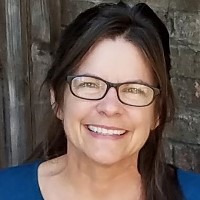ADVISORY
By Alicia Lanier
North Carolina, USA
Managing complex projects and programs requires a shift in mindset, and sometimes simply nuanced variations on traditional management techniques. This article aims to share solutions and tools used to manage the challenges inherent to the complex stormwater Watershed Master Plan Program at the City of Fayetteville in North Carolina, US.
The Fayetteville Watershed Master Plan program was initiated in 2018 through Council direction. Prior to the program, the stormwater program was primarily reactive, with small projects developed and built without an understanding of the citywide needs. In 2018 Council directed staff to study the entire city and to provide a prioritized list of projects both for short-term implementation as well as long-term implementation. Staff was faced with building a program from the ground up while also providing projects as soon as possible. The existing stormwater system needed to be understood, teams lined up to conduct the modeling (hydrologic and hydraulic modeling), guidance developed to support the teams, and more.
Each of the program characteristics of High Level of Complexity, Aggressive Schedule, Large Distributed Team, and Local Government Constraints surfaced numerous challenges, which required a portfolio of solutions and tools. At a high level, the primary solutions used were Iterative and Adaptive Process, Continuous Collaboration, Templates and Automations, and Frequent Measurable Results. When selecting which tools to discuss, we asked What’s the Difference that Makes a Difference? While many of these tools may be familiar, the iterative and adaptive nature underpinned by Agile principles make the difference (Lanier, 2023).
High Level of Complexity
The first characteristic is ‘High Level of Complexity’. The program is very large, spans multiple years, and has faced many unknowns during these first few years. The team had a goal to complete the citywide comprehensive analysis within four years, yet had limited information about the existing stormwater system. This data needed to be collected before models could be developed. Guidance for the studies was continuously being developed as stormwater data were collected and models begun. While there were some ideas about the end product, the vision evolved as more results became available.
Specific challenges included scoping work under uncertainty, and improving the process and technical approach, while remaining aligned with the vision. Tools in solution categories Iterative and Adaptive Process and Frequent Measurable Results used to address the specific challenges include Phased Contracts, Standards Manual, and Retrospectives, and are described below.
Challenge: How to scope work? Study durations ranged from 1.5- to 2-years, and modeling was begun while the guidance was being developed, the geodatabase was being built and survey data collected. The scope to complete proposed solutions could not be developed until flooding concern areas were identified. Phased Contracts allowed an incremental approach to planning.
Challenge: How to improve process and technical approaches? Many requirements evolved as studies were ongoing, such as Level of Service determination. This necessitated continuous updates to the Standards Manual and other tools supporting the studies. Another tool was Retrospectives, a whole-team brainstorm of What went well, what could be changed, and ideas for improvement. One outcome was a decision to hold a Technical Modeling Workshop to discuss challenges teams were facing and share solutions.
Challenge: How to align with vision? The vision for the products developed over time, as more information emerged from studies. Teams provided early and frequent results to the Sponsor to obtain feedback.
More…
To read entire article, click here
How to cite this article: Lanier, A. (2023). Managing for Complexity, PM World Journal, Vol. XII, Issue VI, June. Available online at https://pmworldlibrary.net/wp-content/uploads/2023/06/pmwj130-Jun2023-Lanier-managing-for-complexity-2.pdf
About the Author

Alicia Lanier
North Carolina, USA
![]()
Alicia Lanier, PE, supports the City of Fayetteville, NC, managing the Citywide Watershed Master Plan program. Alicia has over 20 years of consulting experience providing project management services to complex projects for various clients. In her current role, Alicia focuses on supporting cross-collaborations of internal and external teams and building intergovernmental and institutional partnerships. She can be contacted at alicia@lanier-consulting.com









